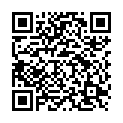|
|
|
| Module code: BAIBA-310 |
|
|
8V (8 hours per week) |
|
10 |
| Semester: 3 |
| Mandatory course: yes |
Language of instruction:
German |
Assessment:
Written exam
[updated 10.12.2020]
|
BAIBA-310 (P420-0485) International Business, Bachelor, ASPO 01.10.2008
, semester 3, mandatory course
|
120 class hours (= 90 clock hours) over a 15-week period.
The total student study time is 300 hours (equivalent to 10 ECTS credits).
There are therefore 210 hours available for class preparation and follow-up work and exam preparation.
|
Recommended prerequisites (modules):
BAIBA-220 Balance Sheets and Cost Accounting
[updated 20.03.2010]
|
Recommended as prerequisite for:
BAIBA-540
BAIBA-670
BAIBA-680 International Finances Seminar
BAIBA530
BAIBA660
[updated 10.07.2012]
|
Module coordinator:
Prof. Dr. Günter Pochmann |
Lecturer:
Prof. Dr. Günter Pochmann
Prof. Peter Schorr
[updated 20.03.2010]
|
Learning outcomes:
After successfully completing this module, student will be familiar with the basics of annual financial statements and the annual financial statement policy
- They will have advanced knowledge about the components of annual financial statements
- They will be familiar with the basic concepts of international accounting
- Students will be familiar with the German tax system
- They will have an overview of important individual taxes
- They will understand the relationships between the tax various types
- They will be aware of the influence of corporate taxes on operational decisions
[updated 10.12.2020]
|
Module content:
Annual Financial Statements:
- Advanced knowledge of the German trade balance
- Earnings report, annex and financial report
- Cash flow statement and segment reporting
- Introduction to the IFRS International Financial Reporting Standards
Tax Theory:
- General tax theory
- Income tax
- Corporate tax
- Trade tax
- Sales tax
[updated 10.12.2020]
|
Teaching methods/Media:
Lecture, case studies
[updated 10.12.2020]
|
Recommended or required reading:
Bieg, H./ Kußmaul. H.: Externes Rechnungswesen, München, latest edition.
Eisele, W.: Technik des betrieblichen Rechnungswesens, Wiesbaden, latest edition.
Bieg, H. u.a.: Handbuch der Rechnungslegung nach IFRS. Wiesbaden, latest edition
Bornhofen: Tax theory 2, Wiesbaden, in der jeweils aktuellen edition.
[updated 10.12.2020]
|


